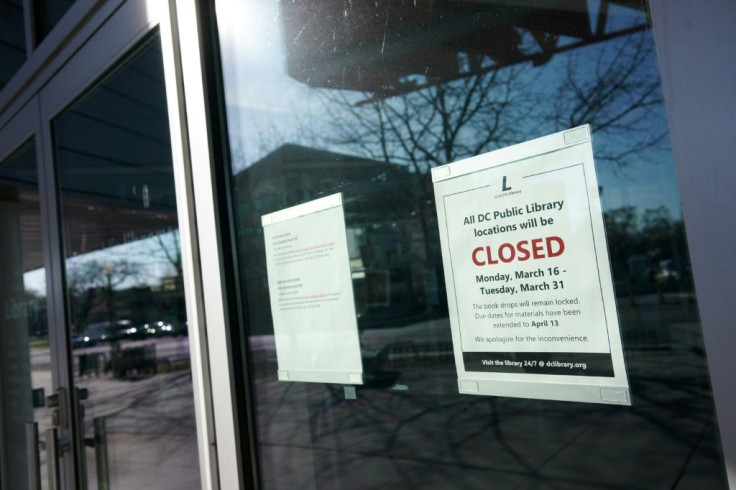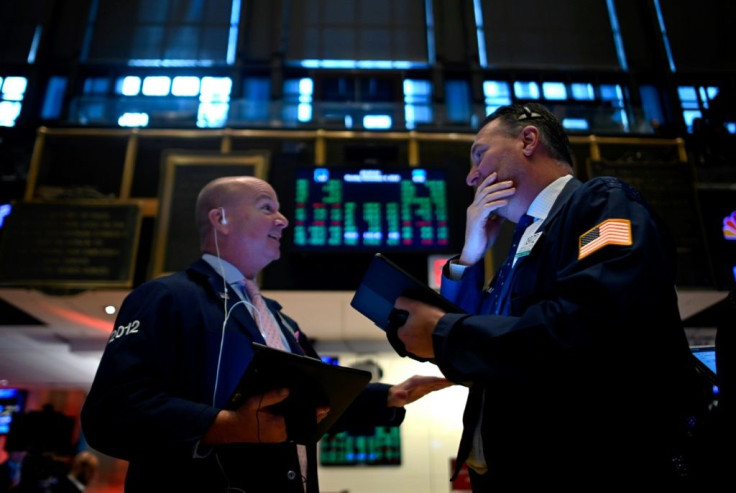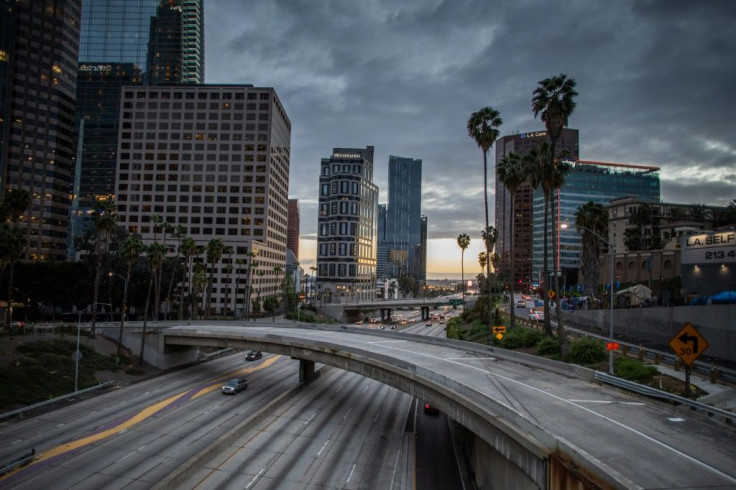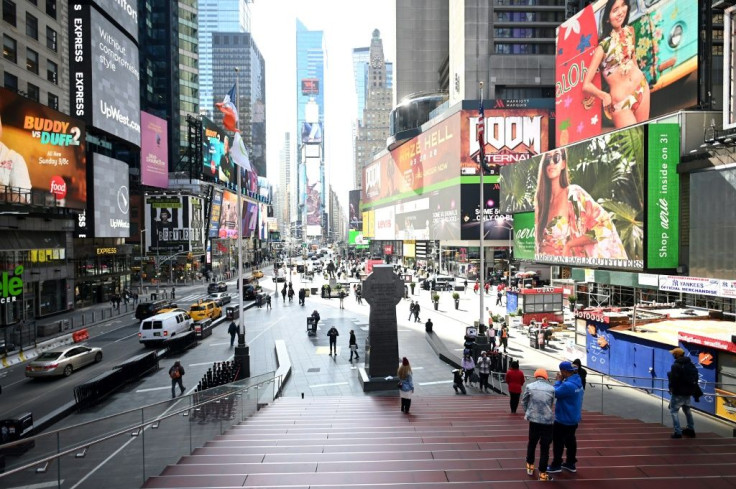Curfews As US Shuts Down To Fight Coronavirus

The United States began restricting citizens' movements Monday in a major escalation of attempts to contain the deadly coronavirus pandemic, as President Donald Trump warned the crisis could last well into the summer.
New Jersey state and San Francisco announced curfews and Trump asked Americans to restrict gatherings to groups of fewer than 10 as the US dramatically ramped up efforts to stop the spread of the fast-moving outbreak.
Trump acknowledged for the first time that the US economy "may be" heading into a recession because of the pandemic that has killed more than 7,000 people worldwide as Wall Street stocks had their worst day since 1987, plunging almost 13 percent.
As America followed European nations in shutting down schools, public buildings, cinemas, restaurants and bars, Trump suggested the crisis would last several months at least in the United States.
"So it seems to me that if we do a really good job... people are talking about July, August, something like that," Trump told reporters at the White House.
"So it could be right in that period of time where it, I say, it washes through."

His comments came after Canada announced it was closing its borders to most foreign travelers and New Jersey Governor Phil Murphy said he was restricting movement across the state, which borders New York City.
"Effective tonight, all other non-essential retail, recreational, and entertainment businesses MUST CLOSE after 8:00 PM," said Murphy.
"All non-essential and non-emergency travel in New Jersey is strongly discouraged between the hours of 8:00 PM and 5:00 AM This will remain in effect for the foreseeable future. We want everyone to be home -- and not out," he added.

Later, San Francisco passed a "remain-in-place" order requiring millions of residents to stay at home unless absolutely essential.
Before the twin announcements, only the US territory of Puerto Rico had imposed a curfew, from 9pm to 5am -- along with the closure of malls, movie theaters, gyms and bars.
The White House denied reports that Trump was considering a nationwide lockdown but the president said he might ask the military to help build temporary hospitals.
He added that postponing elections over the coronavirus crisis was "unnecessary," even as Ohio's governor called for the state's presidential primary vote scheduled for Tuesday to be delayed.

Normally bustling streets, transport networks and roads were eerily quiet across US cities Monday as employees worked from home and children contemplated weeks with no classes to attend.
New York -- the city that usually never sleeps -- began hunkering down for an extended period of inactivity with all nightclubs, theaters, cinemas and concert venues ordered to close from Tuesday.
Mayor Bill de Blasio said late Sunday that the Big Apple's normally hectic bars and restaurants would be restricted to take-out and delivery only.
He also bowed to pressure and announced the closure of New York's schools, which educate 1.1 million students, until April 20.
Los Angeles is also closing bars, restaurants and nightclubs for at least two weeks, while California's Governor Gavin Newsom asked people over the age of 65 to self-isolate.
The governor of Illinois, which includes the city of Chicago, announced that bars and restaurants would close until March 30.
Several major Las Vegas casinos and hotels were shuttered, and party town New Orleans issued guidelines halving the capacity of bars and clubs.
Schools, museums, and sports arenas have already been shut as Americans adjust. Broadway's lights dimmed last week while the major St Patrick's Day parades in New York and Boston due Tuesday have been scrapped.
"I think the lockdown is a good idea to get ahead of the virus. I'll guess we'll have to make some sacrifices," 52-year-old customer Laura Gerlach told AFP at a New York deli.
Canadian Prime Minister Justin Trudeau said that from midday Wednesday only Canadian citizens and permanent residents would be allowed in. US citizens are exempted.
In the US, 74 people have died and more than 4,200 have been infected, according to a tally by Johns Hopkins University.
In Washington, leaders of the G7 industrial powerhouses pledged to safeguard the economy a day after the Fed cut the key interest rate to almost zero to help shore up confidence.
Meanwhile, major US airlines said they would cut capacity by at least 50 percent as they pleaded for a bailout of some $50 billion.
© Copyright AFP 2024. All rights reserved.




















